CBU-TAZARA Mpika Campus is now in full swing
Notice: Undefined index: catFilterList in /home/zambi/public_html/wp-content/plugins/wp-likes/api.php on line 243
By Conrad K Simuchile and Paul Himoonga
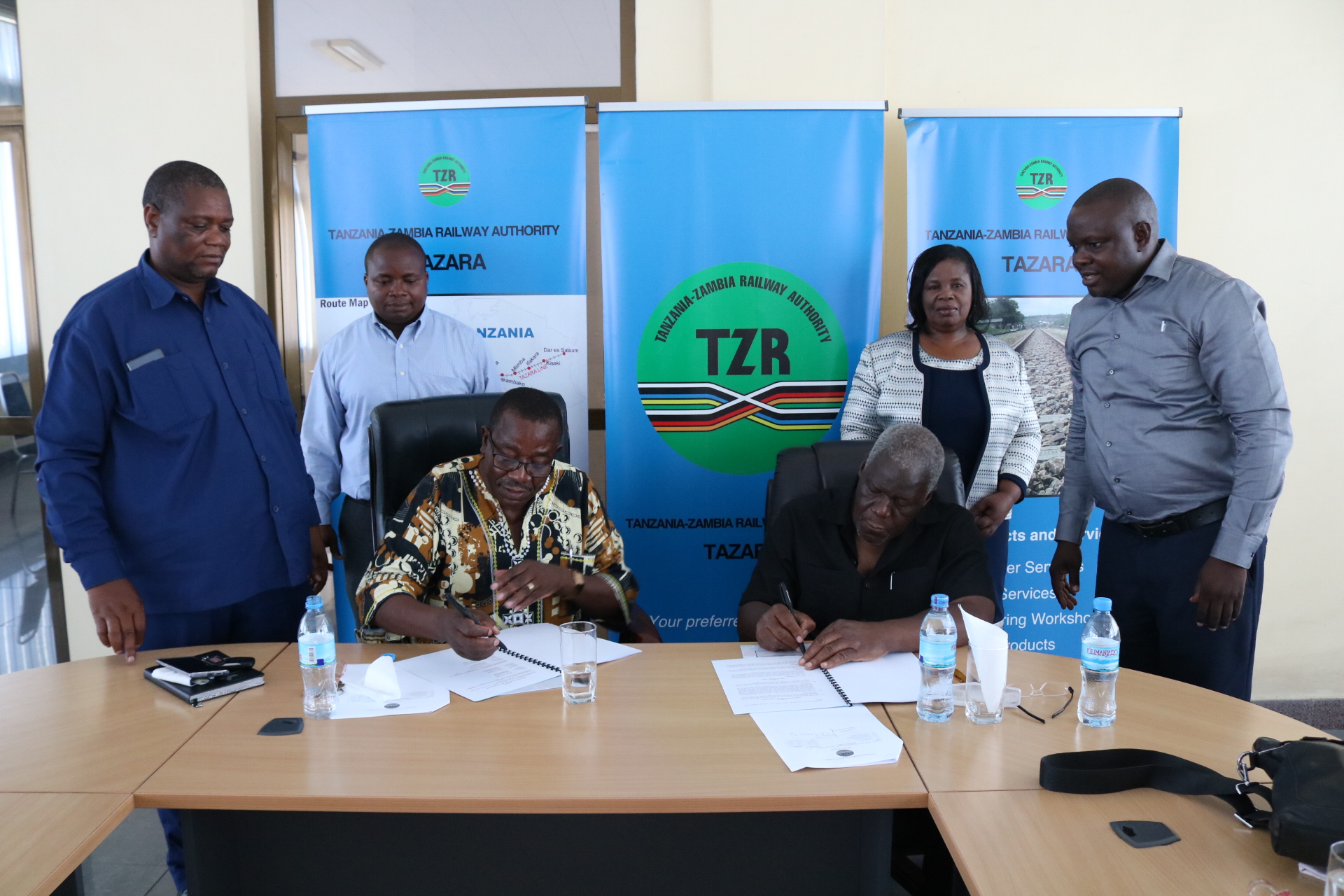
Seated Eng. Chingandu (L), Prof. Ngoma (R), Standing (L to R) Mr Mabala (TZR Corporation Secretary), Mr Mabewa (TZR Training Manager), Mrs Mukumba (CBU Registrar), Mr Himoonga (Ag. Director, Int. Relations)
The Tanzania-Zambia Railway Authority (TAZARA) and the Copperbelt University (CBU) of Zambia have signed an Academic Business Partnership Agreement, officially operationalizing the establishment of the CBU-TAZARA Mpika Campus at the TAZARA Training Centre, which has already begun offering skills development in railway related engineering and logistics academic programs at Diploma, Bachelor Degree, Master Degree and PhD levels.
Apart from setting up a unique relationship that creates unheralded value and opportunities for both the University and the railway industry, the partnership is an undertaking to position both institutions towards contributing to the planned African Integrated High Speed Railway Network (AIHSRN) in areas of human capital development and manufacturing of railway related products.
The AIHSRN is a flagship project of the African Union (AU) Agenda 2063, which has earmarked TAZARA’s Mpika Workshops as one of the centres to play a key role in the manufacture of components for the railway project.
The Business Agreement, which specifies the contributions and benefits of each party as well as dispute resolution mechanisms, was signed in Dar es Salaam, on 4 January 2020, by the two institutions’ Chief Executive Officers, Eng. Bruno Ching’andu, Managing Director of TAZARA, and Professor Naison Ngoma, the CBU Vice Chancellor, respectively.
Initiative Commended
Eng. Ching’andu hailed the signing of the Agreement.
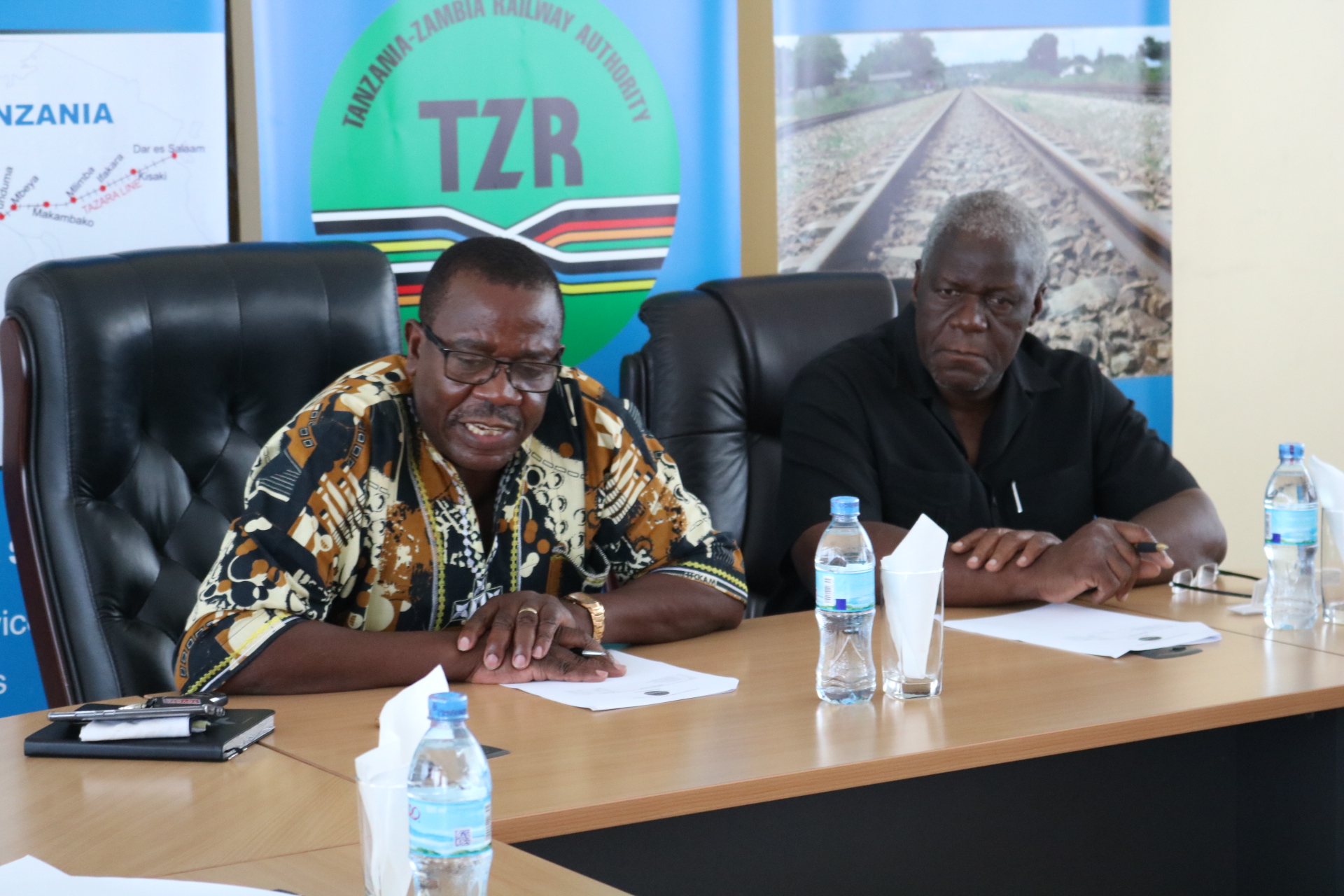
Chief Executive Officers, Eng. Bruno Ching’andu Managing Director of TAZARA, (left) and Professor Naison Ngoma, the CBU Vice Chancellor (right)
“We are delighted to be signing this Agreement, which signals the implementing of the Memorandum of Understanding that we signed in 2017 to provide a framework for establishing a practical training institute that maximizes the utilization of the already existing resources at TAZARA and CBU.
“I am positive that this Agreement will give impetus to our relationship and enable us to harness the knowledge and experience in the railway sector, which we should all apply to the benefit of the institutions and the countries in the region,” Eng. Ching’andu said.
The Vice Chancellor emphasized that the University was keen to see TAZARA benefit through the training of employees, knowledge exchange and economic value for the utilization of the TAZARA infrastructure.
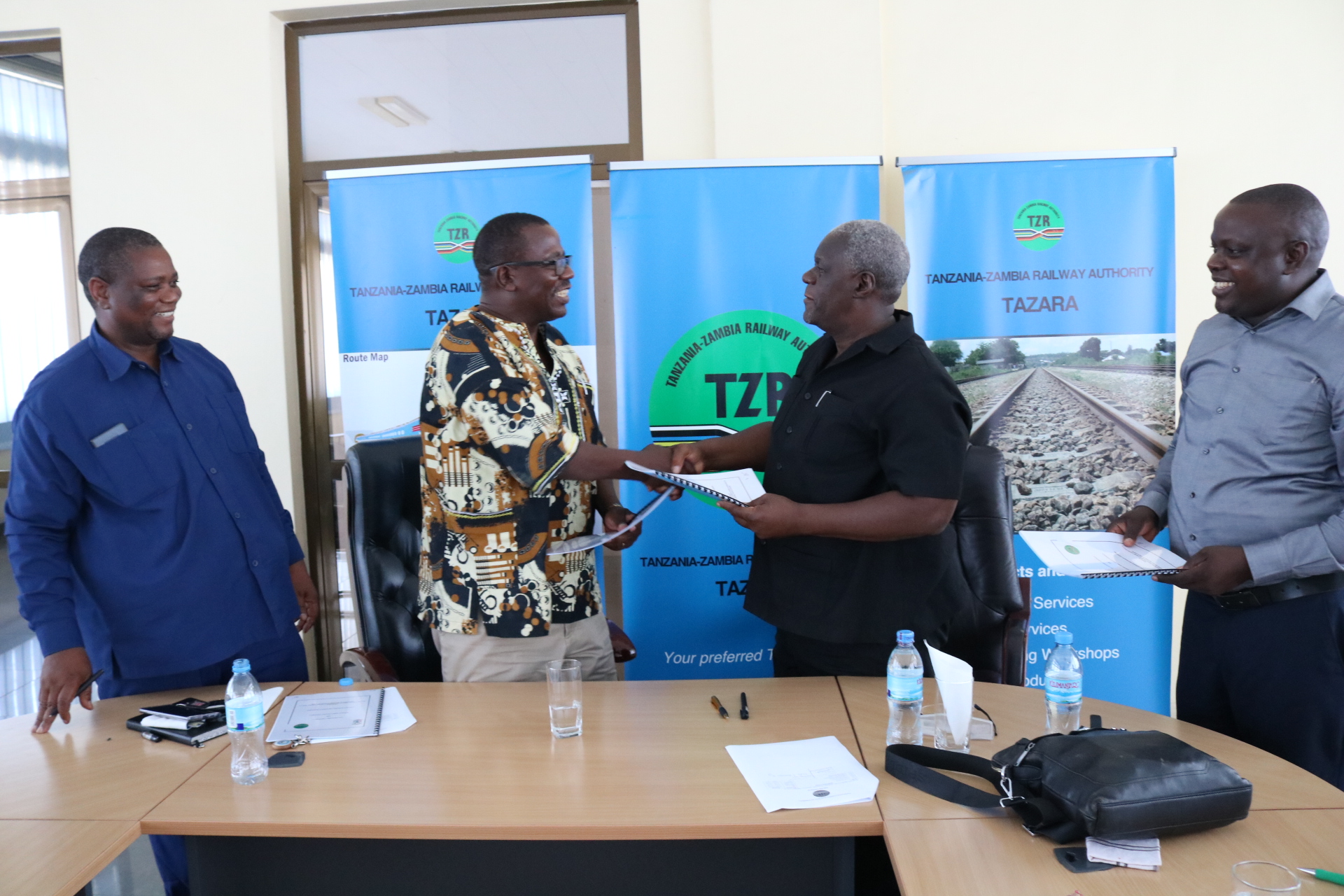
Eng Bruno Chingandu (L) and Prof. Naison Ngoma (R) shaking hands after signing, looking on are Mr Marco Mabala (L) and Mr Paul Himoonga (R)
Prof Ngoma said, “I am particularly encouraged by the Southern Africa Railways Association’s welcoming of the partnership and recommendation that other member countries take leaf of our pioneering initiative to make use of the vast knowledge in the railway industry.”
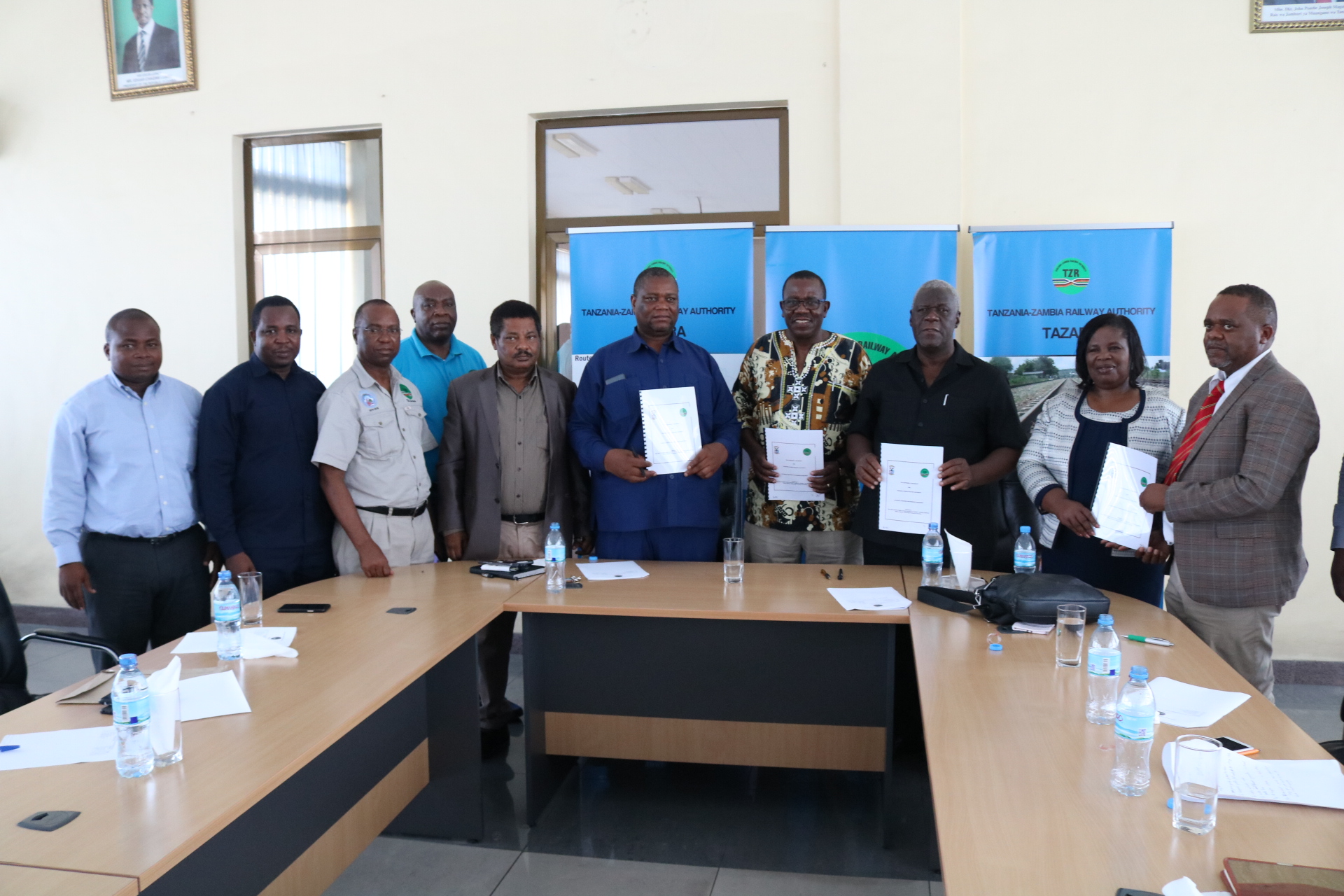
L to R, Mr Mabewa (TM TZR), Mr Kabela (MPCA TZR), Mr Mbala (HRM TZR), Eng. Kambani (RGMZ TZR), Mr Abdallah (RGMT TZR), Mr Mabala (Corp Sec TZR), Eng. Chingandu (MD TZR), Prof Ngoma (VC CBU), Mrs Mukumba (Reg
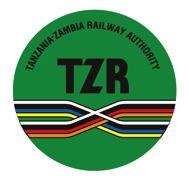
Tanzania-Zambia Railway Authority (TAZARA) logo
About TAZARA
TAZARA is a bi-national railway jointly owned by the Governments of the United Republic of Tanzania and the Republic of Zambia on a 50-50 shareholding basis. The 1,860km-railway connects landlocked Zambia to the seaport of Dar es Salaam in Tanzania and further provides road and railway inter-connectivity to other parts of Southern Africa. In essence, TAZARA provides a communication backbone for the three regional groupings of SADC, COMESA and the East African Community. TAZARA has huge facilities that remain underutilized, including the Training Centre in Mpika, Workshops in Mpika, Mbeya and Dar es Salaam, 6 fuel storage facilities and warehouses located throughout the line. Located in close proximity with the Mpika Workshops, the TAZARA Training Centre currently has capacity to accommodate more than 300 students, with plenty of scope for expansion. The workshops will also be utilized as part of the training facility for hands-on practical skills development.
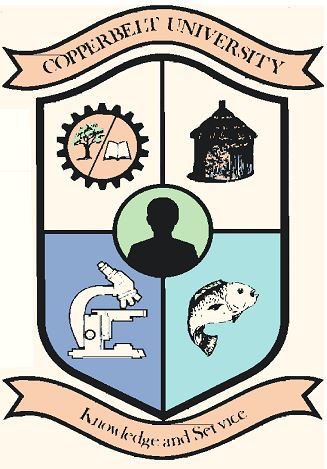
Copperbelt University (CBU) logo
About CBU
The Copperbelt University is a public university based in the Copperbelt Province of Zambia with a student population of about 10,000. The University produces an average of 1500 graduates specialized in various engineering disciplines, the Built Environment, Human Resource management, Natural Resource Management, Business Management, Science Education, Peace and Conflict resolution, Medicine and many other specializations necessary for national development. The University has 10 faculties offering programs ranging from Diploma to Doctorate levels and these are taught through part-time, Fulltime and Distance Education modes. The Minimum entry requirements into the University are Five O Level Credits for Diploma and Undergraduate, first degree for Postgraduate and Masters Degree for Doctorate studies.

Conrad K. Simuchile
Conrad K Simuchile,

Copperbelt University External Relations, Ag. Director, Paul Himoonga
Paul Himoonga,

















